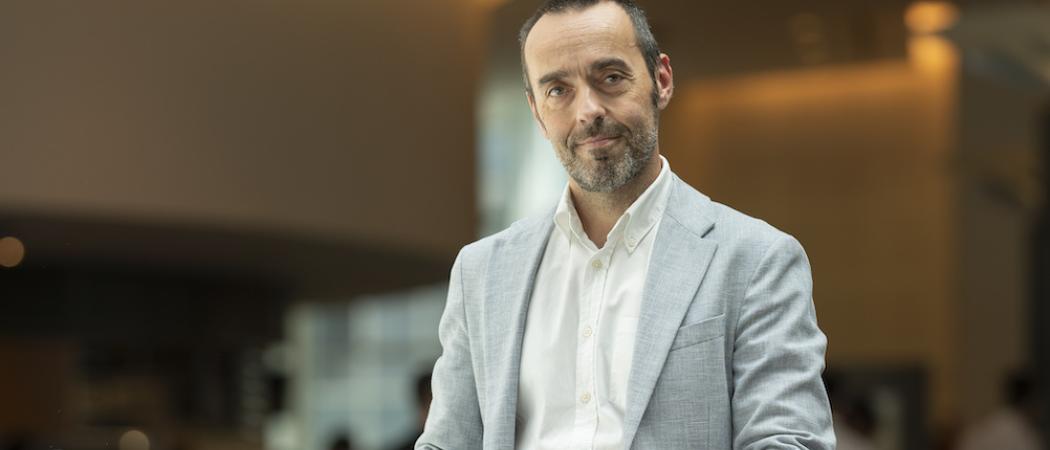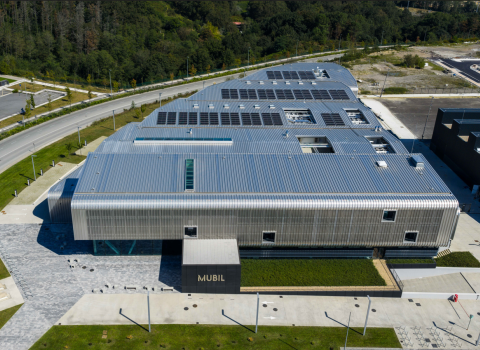Former Belgian environment minister and now MEP, Bruno Tobback calls for more money and a plan to ensure the Green Deal generates productivity growth

Europe has fallen behind when it comes to clean and digital technologies because of a lack of investment and a failure to plan to achieve its targets, says newly elected Belgian MEP Bruno Tobback.
While the US is committing hundreds of billions of dollars to clean energy technologies via the Inflation Reduction Act, many EU countries would happily invest more but are hindered by strict budget deficit rules, Tobback said. “We have not created a framework in which it is possible,” he told Science|Business.
Meanwhile, Europe is lagging behind China due to a lack of focus, says the S&D group MEP. “We have created a market for electric vehicles with very strict ambitions towards 2035. We just seem to have neglected to produce a plan and an investment roadmap to make those cars.”
Tobback welcomed the recent report on EU competitiveness from former Italian prime minister Mario Draghi, which identified additional investment needs of €800 billion per year, and urged Europe to focus its efforts on strategic sectors.
For research and innovation, Draghi recommends doubling the budget for the next EU framework programme to €200 billion, while focusing on a smaller number of priorities, saying Horizon Europe is spread across too many fields.
“In an ideal world, I’m 100% technology neutral,” Tobback said. “But what we cannot do is be technology neutral in the sense that we give everybody all the money they might need to develop [every technology], because the money is simply not there. We’ll need to make choices.”
Green Deal
After being elected to the European Parliament in June, Tobback joined the industry and research (ITRE) committee, where he wants to prioritise files related to energy policy and the circular economy.
The former federal minister for environment and pensions will be working to ensure the EU sticks to the path set by the Green Deal, because he is convinced that is also the route to much-needed productivity growth, rather than a barrier as critics would have it.
“If Europe keeps thinking it's ahead while it's actually standing still, and the rest are running, there will come a point when we can no longer catch up,” he said. “That point is coming very close, and so slowing down now is the worst thing we can do for our economic future as well as for the future of the planet.”
He was reassured to see the Green Deal as a common thread in President Ursula von der Leyen’s mission letters to future commissioners, and her pledge to bring forward a proposal for a Clean Industrial Deal to support decarbonisation.
However, with four different commissioners called upon to implement the Clean Industrial Deal, Tobback says there is a high risk of fragmentation, and the focus needs to be on technologies where Europe can lead.
“If the industrial deal is about doing as much as possible to save the Volkswagen Group, I think we're going in the wrong direction, as much as I hope the Volkswagen Group can save itself,” he said.
“It should be about looking where we can build the future […] Conserving the past is what museums are for, and I do hope that the European economy of the next decades will not resemble a museum.”
Commission uncertainty
When presenting the new College of Commissioners, von der Leyen explained it was a conscious decision to have overlapping portfolios so that commissioners will be forced to work together like never before.
While he is hoping this cooperation will materialise, Tobback says it could also be “a recipe for mutual, respective blocking of a number of projects which, as a more or less experienced politician, I see a high probability of.”
He expects the confirmation hearings to provide MEPs with important clarifications, including around concepts such as simplification and faster permitting. “Let’s facilitate biopesticides, for example, and make sure the permitting process is as efficient as possible,” he said. But, “Let’s not confuse faster permitting with lax permitting.”
The mission letters created uncertainty around the next framework programme FP10, which is not mentioned. That is fuelling speculation Horizon Europe could be broken into individual instruments, with the collaborative research and innovation pillar absorbed by the proposed European Competitiveness Fund.
“There’s a big tradition of shuffling the same pot of money around and calling it by a different name,” Tobback said. He warns that shaking up funding instruments with every new mandate risks causing confusion for prospective applicants, although he says investing in competitiveness is a necessity.
The Competitiveness Fund proposed by von der Leyen would be used to invest in technologies such as AI, space and clean tech, and to de-risk private investment.
“We can never do everything with only public financing, especially in the European environment, where we are very strict on public financing,” Tobback said. “You need to find a way to crowd in private finance. But to do that, you need to have a very predictable roadmap for where you want to go.”
When it comes to clean energy, much of the technology exists already and the challenge is getting the electricity to where it is needed. Grid infrastructure will be key in the coming years, Tobback says.
“It will also allow a lot of new technology to be implemented. It will help create a market for battery storage. It will create opportunities for new artificial intelligence models, new IT models, new business models.”
This will require not just investment, but also regulatory reform. “Right now, if you want to transport wind energy from Sweden to Germany, the Swedish consumers have to pay for the cable to transport the electricity, and there’s no way around that,” he said.





 A unique international forum for public research organisations and companies to connect their external engagement with strategic interests around their R&D system.
A unique international forum for public research organisations and companies to connect their external engagement with strategic interests around their R&D system.